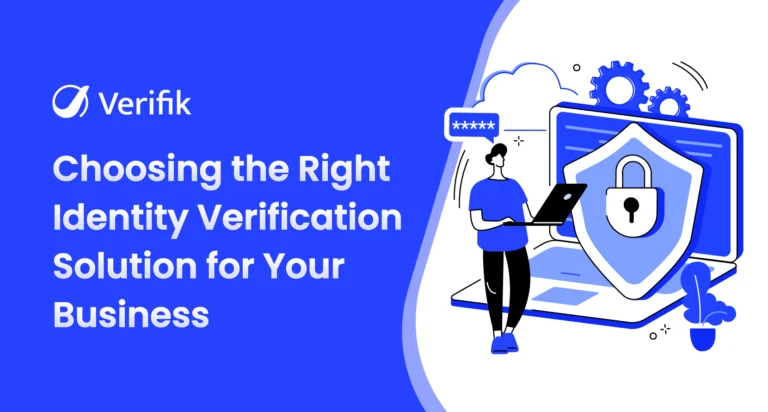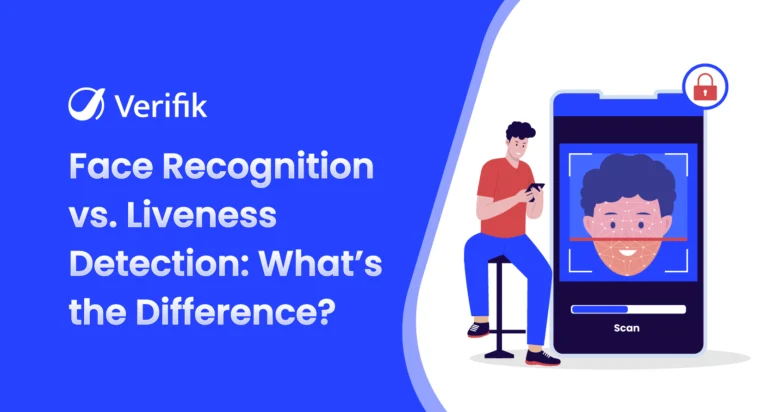Electronic bill invoicing has simplified and optimized the way companies manage their operations, reducing costs and time in the issuance of tax documents. However, for this process to be really easy, fast and secure, data verification becomes a key element.
Validating the information of customers, suppliers, and any third party before issuing each invoice not only prevents fraud and errors. It also ensures compliance with legal regulations. In this blog, we will explore how effective data verification is fundamental to ensuring secure electronic invoicing, optimizing management, and protecting the integrity of transactions.
Why does electronic bill invoicing require robust data verification?
Electronic bill invoicing is an essential step in the digitalization of companies. It facilitates process automation and tax compliance. However, for it to work efficiently and securely, it needs robust data verification.
This process ensures that the information for each transaction is accurate, avoiding errors that can result in tax or financial problems. Such as incorrect customer data or erroneous amounts.
In addition, data verification is an essential barrier against fraud. It ensures that only legitimate transactions are processed, protecting the integrity of the company. This not only helps to comply with regulations. It also builds trust among the parties involved, strengthening business relationships and enhancing the company’s reputation.
The main risks of electronic bill invoicing without verification technologies
Electronic invoicing is an essential step in the digitalization of companies. It facilitates process automation and tax compliance. However, for it to work efficiently and securely, it needs robust data verification.
This process ensures that the information for each transaction is accurate. This avoids errors that can result in tax or financial problems, such as incorrect customer data or erroneous amounts.
In addition, data verification is an essential barrier against fraud. It ensures that only legitimate transactions are processed, protecting the integrity of the company. This not only helps to comply with regulations. It also builds trust among the parties involved, strengthening business relationships and enhancing the company’s reputation.
How data verification enhances regulatory compliance
Data verification is a fundamental pillar to ensure regulatory compliance in companies. When it comes to submitting quarterly exogenous reports to entities such as DIAN (Dirección de Impuestos y Aduanas Nacionales), the accuracy of the information must be critical.
Errors or incorrect data can lead to fines or penalties that affect the financial health of the company. Implementing robust verification processes allows organizations to minimize these risks. But also improve their relationship with tax authorities and strengthen their reputation. For example, having verified data ensures that tax obligations are effectively met, avoiding unpleasant surprises in audits.
Benefits of identity verification in electronic invoicing
Fraud reduction: Ensures that transactions are authentic and customer information is accurate, minimizing the risk of fraud.
Improved data accuracy: Facilitates the collection of correct data, which avoids errors in billing and tax reporting.
Regulatory compliance: Helps companies adhere to tax regulations, reducing the possibility of penalties and fines.
Increased trust: Generates confidence among the parties involved by ensuring that the information presented is truthful and verified.
Operational efficiency: Optimizes invoicing processes by automating verification, which saves time and resources.
Verifik: Simplifying data verification for secure e-invoicing
In today’s digital age, where electronic invoicing is critical, Verifik is an effective solution for data verification. With our solution, Data Base Screening uses advanced technology to automate identity validation, ensuring that data is accurate and up-to-date.
This drastically reduces the risk of errors, fraud and the negative impact on regulatory compliance. In addition, Verifik facilitates the quarterly reporting process required by institutions. Allowing companies to focus on growth and operational optimization. With Verifik, security and efficiency go hand in hand.
Learn more about Verifik here or contact us to give you the best anti-fraud solution for your business. Integrate now the identity verification solution your business needs!
What is smartENROLL, and how does it help my business?
smartENROLL is Verifik’s comprehensive user onboarding solution that uses advanced identity verification technologies, such as facial recognition, liveness detection, and document scanning. It simplifies the onboarding process by automating tasks, validating data against local and international sources, and ensuring compliance with KYC/AML regulations. With its Passive Facial Liveness architecture, smartENROLL detects presentation attacks using just the same single-image selfie, reducing abandonment rates, preventing identity theft while enhancing user experience. It’s ideal for businesses in any industry looking to onboard users securely and efficiently.
How does smartACCESS improve platform security?
smartACCESS is a password-free login solution that combines Biometric Scanning and one-time passcode (OTP) technology to provide secure and seamless access to your platforms. It verifies facial features in real-time to prevent impersonation and deepfakes, ensuring only authorized users gain entry. By eliminating passwords, smartACCESS reduces the risk of data breaches and simplifies the login process, saving time for both users and businesses. You can customize login options (email, phone, or biometric) to suit your needs.
What is DataBase Screening, and why is it important?
DataBase Screening is Verifik’s service for validating user information against trusted local and international databases, such as Interpol, RUES, SIMIT, and government registries (e.g., CNPJ in Brazil, CUIT in Argentina). It helps businesses verify identities, check for criminal records, and ensure compliance with regulatory requirements. This service is critical for preventing fraud, improving database quality, and maintaining trust in industries like finance, events, and e-commerce.
How does smartENROLL support regulatory compliance?
smartENROLL is designed to help businesses meet legal and regulatory requirements, such as Know Your Customer (KYC) and Anti-Money Laundering (AML) standards. It validates user identities through biometric checks, document scanning, and data verification against multiple sources. By automating these processes, smartENROLL reduces manual errors and ensures your business stays compliant with industry regulations while protecting against fraud.
Can smartACCESS and smartENROLL be customized for my brand?
Yes, both offer advanced customization options. You can adapt the design by modifying colors, text, and messages in the interface and communications to align with your brand’s identity. Additionally, you can enable login options like email, phone, or facial recognition to suit your platform’s needs, ensuring a consistent and secure user experience.
What industries benefit from Verifik’s DataBase Screening?
DataBase Screening is valuable for industries requiring high levels of trust and compliance, including financial services, event management, e-commerce, and healthcare. For example, customers use us to screen people people or even vehicles, all done throught an API integration. This ensures secure operations and regulatory adherence across sectors.
How does smartENROLL prevent fraud during onboarding?
smartENROLL uses a combination of liveness detection, facial recognition, and document verification to ensure the authenticity of users. Additionally, it cross-references user data with trusted databases to detect identity theft or fraudulent documents, providing robust fraud prevention.
How does DataBase Screening integrate with other Verifik products?
DataBase Screening works seamlessly with smartENROLL and smartACCESS to provide end-to-end identity verification. For example, during onboarding with smartENROLL, govenment IDs data is extracted and cross checked with government or criminal records.
CEO and Founder of Verifik
As the founder and CEO of Verifik, Johan Castellanos is on a mission to reshape the future of digital identity. With a passion for privacy and digital trust, he’s building groundbreaking tools like ZK Face Proofs to help businesses and users connect safely in both Web2 and Web3 spaces.





